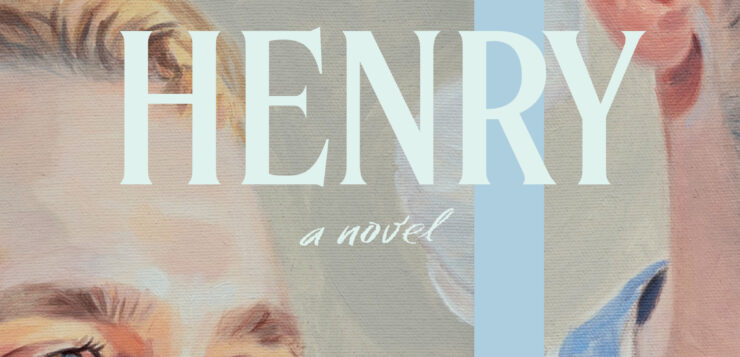 HENRY HENRY
HENRY HENRY
by Allen Bratton
Unnamed Press. 350 pages, $29.
ALLEN BRATTON is an American writer whose first novel, Henry Henry, transfers Shakespeare’s “Prince Hal” (Henry V, 1386–1422) to the year 2014, when old Catholic families and a hereditary upper class still exist in England, but theology and rank seem increasingly irrelevant to the issues of the day. The Hal of the novel is a handsome, apparently aimless young man who spends much time getting drunk and high when not having casual sex with his pal Jack Falstaff. Along comes Henry Percy, a long-term acquaintance whose titled family has known Hal’s family for generations. A comparison of the complex relationship of these two characters with that of their historical counterparts is instructive: Shakespeare’s Percy is the archenemy of the man who eventually becomes Henry V.
While abuse and addiction are at the heart of this novel, it can also be read as a dark comedy. Here is Hal’s analysis of the results of too much drinking, expressed in a wry third-person voice: “There were a lot of different ways you could vomit from being drunk. There was the tactical thunder, the unloosing of a stomach’s worth of lager to make room for another few pints; the surprise puke, which was not a surprise because it would happen inevitably if you did not make it happen yourself; the takeaway puke, when you scarfed a Styrofoam box full of chips or an extra-spicy kebab and then gagged it back up again like a dog who’d pawed open the rubbish…” and so on for another hundred-plus words.
Henry’s disappointment in his eldest son Hal is no greater than Hal’s disappointment in himself. Reluctantly going to visit his father at the family home in London, Hal thinks of the house as another version of his own body, which he wouldn’t live in if he had a choice.
If there’s a redemptive arc in this novel, it involves Hal’s interest in his father’s cousin Richard (based on King Richard II), who died after becoming estranged from Henry for several reasons, including Richard’s long-term relationship with another man. In the novel, the death of Richard from AIDS-related causes seems to Henry (Hal’s judgmental father) to be God’s punishment for his “perversion,” but Hal realizes that he can form his own opinion. Hal impulsively visits Edward, Richard’s surviving and Edward’s current lover, at a country house, where he receives a warm welcome in an idyllic setting.
The 35 chapters of this stunning novel are grouped into six sections, each with a witty title. Henry Henry, which covers a timespan of about a year, presents the everyday life of young Hal in the style of a weighty chronicle of British history. As in Shakespeare’s “Henry” plays, the young man who seems to be sowing his wild oats eventually sobers up, although the ending of the novel is somewhat inconclusive. The hypochondriac Henry, who seems to believe he’s perpetually on the brink of death, is still alive on the last page, but history suggests that Hal will outlive him and will accede to Henry’s title and estate. Perhaps he’ll surprise everyone and succeed brilliantly in the role of duke.
_______________________________________________________






